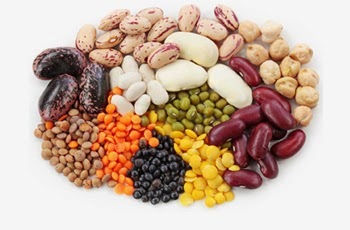
Heart disease may be a leading cause of death, but that doesn't mean you have to accept it as your fate. Although you lack the power to change some risk factors such as family history, sex or age — there are some key heart disease prevention steps you can take.
You can avoid heart problems in the future by adopting a healthy lifestyle today and by eating some right kinds of foods. Here are some best natural tips and heart disease preventions to prevent Heart Attacks and many other heart problems.
11. Best Foods and Tips To Prevent Heart Attacks
1. Salmon

Salmon and other fatty fish such as sardines and mackerel are the superstars of heart-healthy foods. That's because they contain copious amounts of omega-3 fatty acids, shown in studies to lower the risk of arrhythmia (irregular heart beat) and atherosclerosis (plaque build-up in the arteries) and decrease triglycerides. The American Heart Association recommends eating fish and preferably fatty fish at least twice a week. Omega-3 fatty acids are also available as dietary supplements.
2. Legumes

Legumes, such as pinto, black and kidney beans, chickpeas and lentils, are low-fat, high fiber protein sources . They are cholesterol-free, vitamin-rich and contain minerals, such as calcium. Tofu and other soy products -- edamame, veggie burgers, soy milk and tempeh -- are lean protein sources, and eating them for snacks or meals may lower LDL cholesterol and reduce your risk of cardiovascular disease.
3. Some Vegetables oils

such as corn, soy and safflower, which contain omega-6 fatty acids, and those containing omega-3 fatty acids such as canola and olive oil. All of these can help to lower LDL cholesterol when used instead of saturated fats such as butter
4. Nuts
5. Oatmeal

Oatmeal is high in soluble fiber, which can lower cholesterol. "It acts as a sponge in the digestive tract and soaks up the cholesterol so it is eliminated from the body and not absorbed into the bloodstream," says Lauren Graf, a registered dietician and co-director of the Cardiac Wellness Program at Montefiore Medical Center in New York City. Graf recommends avoiding instant oatmeal, which often contains sugar, and heading instead for old-fashioned or even quick-cooking oats. Other whole grains such as bread, pasta and grits are also good for the heart as long as they still contain the entire grain.
6. Soy Milk
It's high in the organic compound isoflavones, which has been shown to help reduce cholesterol. Unlike animal milk, this beverage contains no cholesterol and is naturally low in fat. In also contains niacin, which helps boost circulation.
7. Beans
8. Raisins
Research has shown that antioxidants in raisins fight the growth of a type of bacteria that can cause inflammation and gum disease. People with gum disease—which affects up to 50 percent of American adults—are twice as likely to suffer from heart problems. So, dealing with one can help people avoid the other. Last summer, a major heart journal and a major periodontal journal simultaneously published a consensus paper that outlines the link between the two diseases: inflammation. As a result, choosing certain foods, such as raisins, may help you protect both your gums and your heart.
9. Blueberries
Not just blueberries, but strawberries and other berries as well. According to one recent study, women aged 25 through 42 who ate more than three servings of blueberries and strawberries a week had a 32% lower risk of heart attack compared with those who ate less. The authors of the study attributed the benefit to compounds known as anthocyanins, flavonoids (which are antioxidants) that may decrease blood pressure and dilate blood vessels. Anthocyanins give plants their red and blue colors.
10. Avocado oil
Pressed from the fruit, avocado oil has been touted as a more heart-healthy cooking oil because of its ability to modify fatty acids in tissues around the heart. A 2005 National Institute of Cardiology study that showed the oil could decrease hardening of the arteries, which often leads to heart disease.
11. Apples

Apples were associated with a lower risk of death from both coronary heart disease and cardiovascular disease in the Iowa Women’s Health Study, which has been tracking 34,000-plus women for nearly 20 years. Finnish researchers studying dietary data collected over 28 years from 9,208 men and women found that frequent apple eaters had the lowest risk of suffering strokes compared with nonapple eaters. What explains the hearty benefits? Researchers suggest that the strong antioxidant flavonoid compounds found in apples—quercetin, epicatechin, epigallocatechin, kaempferol and other polysyllabic wonders—play a key role by preventing “bad” LDL cholesterol from oxidizing and triggering a series of events that result in the buildup of plaque in arteries, as well as inhibiting inflammation. Apples are also rich in pectin, a form of soluble fiber known to help lower cholesterol, and they provide a decent amount of vitamin C, another antioxidant.
11. Best Foods and Tips To Prevent Heart Attacks
By R. Fajri

Lifestyle and family history both play an important role in the health of your heart. As we all know, living with heart disease or any other heart condition may be ultimately debilitating and decrease your life span. The good thing from all this, is that most heart conditions can be prevented and/or managed if you know the proper lifestyle adjustments required.
Some of the best ways to keep your heart healthy include quitting smoking, getting regular check-ups from your doctor, reducing stress, eating more fiber, exercising regularly, moderating your drinking, adding fish to your diet, eliminating cholesterol, increasing your antioxidant intake, and many more.
Cardiovascular health is one of the most talked about topics in the medical, nutrition, and lifestyle industries today. Considering that cardiovascular-related diseases are the biggest killer in the world every year, it is a serious problem that thousands of specialists around the world are trying to address. However, as it turns out, some of the best ways to protect yourself from cardiovascular diseases, such as heart attacks, strokes, coronary heart disease, embolisms, and other serious health risks have nothing to do with going to a doctor’s office. You are in control of your heart health, because the most important elements in maintaining a healthy heart are the choices your personally make every day.
The things you eat and the things you do are in your control, and by altering your lifestyle and nutritional habits in certain ways, you can significantly boost the strength and longevity of your heart. Ideally, a combination of the heart health techniques explained below will make its way into your life to increase your health. If you can manage to implement all 20 in your daily or weekly life, then your ticker will be thrilled and your quality of life will surge dramatically. Let’s take a closer look at some of the very best ways to keep your heart healthy.
10. Ways to Keep Your Heart Healthy
1. Quit Smoking
Cigarettes contain a dangerous combination of chemicals, many of which have been proven to negatively affect your heart health. Also, smoking causes a constriction of blood vessels, which leads to higher blood pressure and an increased chance of heart attacks and strokes.
2. Exercise For 30 Minutes
Getting some regular, daily exercise can reduce your risk of fatal heart disease. And when you combine physical activity with other lifestyle measures, such as maintaining a healthy weight, the payoff is even greater.
Physical activity helps you control your weight and can reduce your chances of developing other conditions that may put a strain on your heart, such as high blood pressure, high cholesterol and diabetes.
Try getting at least 30 to 60 minutes of moderately intense physical activity most days of the week. However, even shorter amounts of exercise offer heart benefits, so if you can't meet those guidelines, don't give up. You can even get the same health benefits if you break up your workout time into three 10-minute sessions most days of the week. And remember that activities, such as gardening, housekeeping, taking the stairs and walking the dog all count toward your total. You don't have to exercise strenuously to achieve benefits, but you can see bigger benefits by increasing the intensity, duration and frequency of your workouts.
3. Stress levels
When things start going wrong, one tends to lose appetite and indulge in excess smoking and drinking. In such a situation, managing the stress level is extremely important. If you let stress get on to your head for long you will gradually decrease the number of years in your life. Talk to friends, socialize, slow down a bit and take a break. Enjoying your life to the fullest is the best way to keep your heart healthy and agile.
4. Increase Antioxidant Intake
Antioxidants are some of the most important elements of human health, as they protect your body from the damaging effects of free radicals, which can cause chronic diseases, as well as cancer and cardiovascular disease. Studies have shown as much as a 20% reduction in heart disease when antioxidants are a major part of a person’s diet. Increase your intake of berries, nuts, beans, artichokes, cocoa, citrus fruits, and green leafy vegetables, all of which are high in antioxidants. Also intake of lean beef may also help in lowering blood pressure and reduce risk of cardiovascular diseases.
5. Eat Fish
Finn oil and other omega-3 fatty foods should be taken. It is very useful for the health of your heart. Fish, mackerel, sardines, fresh tuna and salmon fish helps protects you against heart disease.
6. Lose Weight
Obesity is a major contributing factor to heart disease, as it increases your bad cholesterol, increases your blood pressure, elevates your chances of developing atherosclerosis, diabetes, and sleep apnea. Losing weight can eliminate these risk factors that can damage your heart.
7. Lower Your Dependency on Technology
In our modernized world, we are constantly dependent on smartphones, iPads, computers, television, and other technological advancements. many of these force us to not only be sedentary, which contributes to heart disease, but they also increase your level of stress hormones in the body and raise blood pressure. Take a break from technology once in a while and go out to enjoy the real world.
8. Remain Sexually Active
This may be a touch subject for some people, but in fact, remaining sexually active with your partner releases very beneficial endorphins and hormones in your body, counts as exercise, and has been shown in numerous studies to reduce stress, lower blood pressure, and contribute to a healthier heart.
9. Regularly See Your Doctor
No one likes going to see the doctor, as it usually means you are either sick or concerned about your health. However, regular check-ups with a doctor can enable you to discover your “danger” areas of health and doctors offer beneficial and targeted advice on how to eliminate or lower your risk factors that can contribute to heart disease based on your lifestyle, genetics, and other contributing factors.
10. Get Good Sleep
Lack of sleep worsens blood pressure and cholesterol. Sleep deficiency also leads to increased stress levels, which also raises the level of inflammation in your body further increasing risk of heart-related problems. A sleep of 7 to 9 hours each night will help your heart stay healthy.
10. Ways to Keep Your Heart Healthy
By R. Fajri
Subscribe to:
Posts (Atom)










